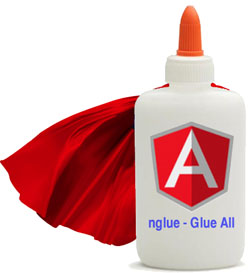grunt-nglue
v0.0.26-1
Published
Glue re-usable angular modules together to create one app
Downloads
5
Readme
grunt-nglue

Glue re-usable angular modules together to create one app
nglue is lightweight architectural micro-framework it stands for the internal architecture of the processor. It provides the skeleton, around the exact needs/features of your application. In other words, nglue framework provides the starting point for your application’s architecture.
See: https://github.com/eladelrom/generator-nglue
Getting Started
This plugin requires Grunt ~0.4.1
If you haven't used Grunt before, be sure to check out the Getting Started guide, as it explains how to create a Gruntfile as well as install and use Grunt plugins. Once you're familiar with that process, you may install this plugin with this command:
npm install grunt-nglue --save-devOnce the plugin has been installed, it may be enabled inside your Gruntfile with this line of JavaScript:
'use strict';
module.exports = function (grunt) {
grunt.loadNpmTasks('grunt-nglue');
};The grunt plugin is intended to be used in an nglue project, it already includes the default task and other tasks.
Grunt tasks:
grunt
Once you run grunt the compiled js and css files will be published to code_base/dist/. Assets files will be copied, less files will be compiled.
It uses the config.js > name and version to generate the names as follow;
To build a min module component file for an app do the following;
grunt app --src=detail-page-app
This grunt task will fetch the nglue.config file from the app and will glue together all the modules bower and none bower components as well as a less files.
The nglue.config file of an app includes all modules you are adding together and than it go to work and pick each nglue.confoig from each module to create the component
library and less files. When you created the app using yo nglue:apps detail-page it will create the scaffolding and template as well as basic nglue.config file.
Here's an example of an app nglue.config file;
